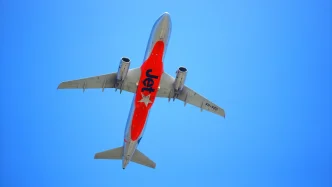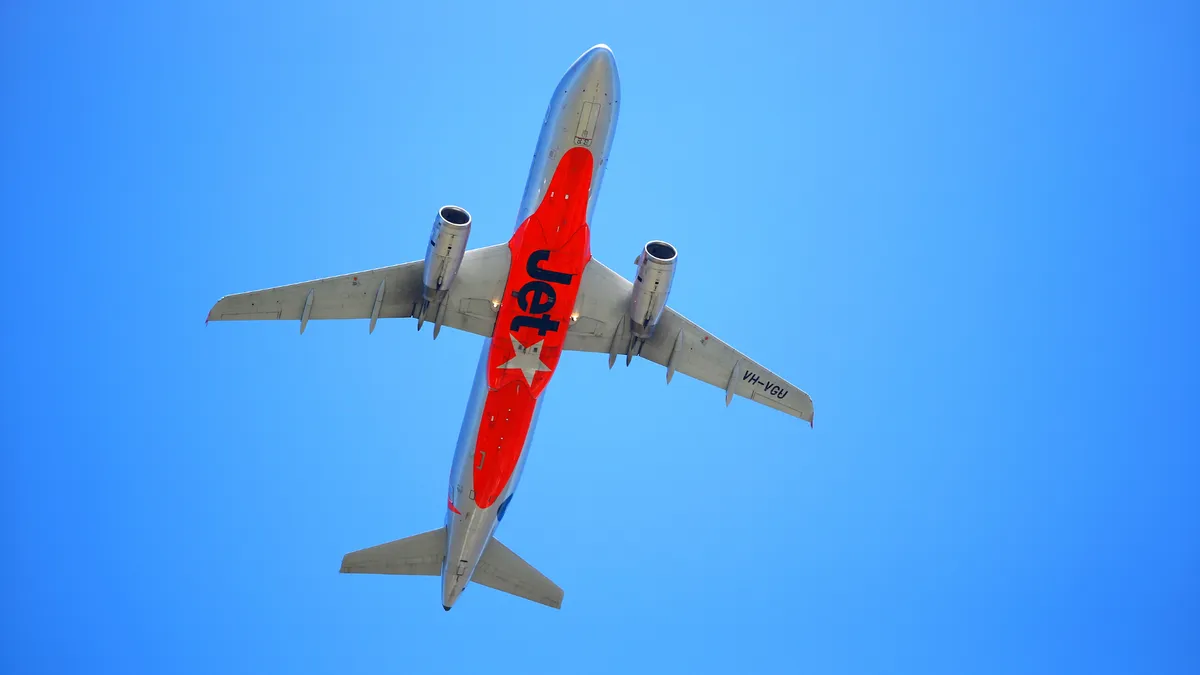Singapore witnessed an emotional chapter in its aviation history as Jetstar Asia, the low-cost carrier that has flown the region’s skies for two decades, touched down for the last time on a scheduled flight. On a humid evening at Changi Airport, passengers, crew, and aviation enthusiasts gathered to bid farewell to the airline, marking the end of an era for affordable travel in Southeast Asia. The final flight, 3K516 from Bangkok, landed amid tears, laughter, and a shared sense of nostalgia, as travelers and staff alike reflected on the airline’s impact over the years.
A Journey’s End at Changi Airport
The scene at Changi Airport was a poignant mix of celebration and sorrow. As the last scheduled Jetstar Asia flight descended, passengers aboard flight 3K516 from Bangkok were greeted with a water cannon salute—a traditional gesture of honor in aviation for significant milestones. The aircraft, adorned with the airline’s distinctive orange and silver livery, taxied to the gate under the watchful eyes of onlookers who had come to witness history. For many, the moment was more than just the end of a flight; it was the closure of a personal connection to a carrier that had made travel accessible across the region.
Jetstar Asia, launched in 2004 as a joint venture with Qantas and local investors, carved a niche in the competitive low-cost carrier market. Based in Singapore, the airline connected travelers to destinations across Southeast Asia, including Bangkok, Manila, and Bali, often at fares that made spontaneous getaways possible for budget-conscious flyers. Over the years, it became a familiar name for millions, embodying the spirit of affordable adventure. But as market dynamics shifted and operational challenges mounted, the decision was made to cease scheduled operations, with the final flight marking a symbolic end.
Passengers and Crew Share Memories
For those on board the final flight, the experience was deeply personal. Passengers spoke of their long-standing relationship with the airline, recounting stories of family vacations, business trips, and last-minute escapes facilitated by Jetstar Asia’s budget-friendly tickets. One traveler, a Singaporean retiree returning from a holiday in Thailand, shared how the airline had enabled her to visit her grandchildren in Bangkok regularly over the past decade. “It’s like saying goodbye to an old friend” she said, as she disembarked at Changi.
The crew, too, felt the weight of the occasion. Dressed in their signature uniforms, flight attendants and pilots posed for photos with passengers, exchanging hugs and words of gratitude. For many staff members, Jetstar Asia wasn’t just a workplace—it was a community. A cabin crew member, who had been with the airline for over 15 years, described the day as “bittersweet.” She recalled the camaraderie among colleagues and the joy of serving passengers from all walks of life. “We’ve been through so much together, and today feels like the end of a family gathering” she added.

The Legacy of Jetstar Asia in Southeast Asia
Jetstar Asia’s departure from the scheduled flight scene leaves a void in Singapore’s aviation landscape. The airline was a pioneer in the low-cost model, challenging traditional carriers and democratizing air travel at a time when regional connectivity was still developing. Its presence helped transform Changi Airport into a hub for budget travel, complementing the premium services of Singapore Airlines and other full-service carriers. Over its 20-year run, Jetstar Asia carried millions of passengers, fostering cultural exchange and economic ties across borders.
Yet, the airline’s closure reflects broader trends in the aviation industry. Rising fuel costs, intense competition from other low-cost carriers, and the lingering effects of global disruptions have strained many operators in the region. While Jetstar Asia’s parent company, Jetstar Group, continues to operate in other markets, the decision to wind down scheduled services in Singapore underscores the challenges of sustaining profitability in a crowded market. Industry observers note that the airline’s exit may prompt a reshuffling of routes and fares, potentially impacting travelers who relied on its affordable options.
A Community Says Goodbye
Beyond the terminal, the final flight resonated with a wider community of aviation enthusiasts and former employees who gathered to pay their respects. Social media platforms buzzed with tributes, as users shared photos and memories of their journeys with Jetstar Asia. The sentiment was clear: while the airline may no longer operate scheduled flights, its legacy endures in the stories of those it connected. At Changi, a small group of plane spotters watched the final touchdown, capturing the moment on camera as a keepsake of a bygone era.
As the last passengers disembarked and the aircraft was prepared for its final rest, there was a quiet acknowledgment of what had been achieved. Jetstar Asia may have flown its last scheduled route, but its impact on affordable travel and regional connectivity remains etched in the memories of those who boarded its planes. For now, Changi Airport stands a little quieter, but the spirit of adventure that Jetstar Asia inspired continues to linger in the hearts of many.
















